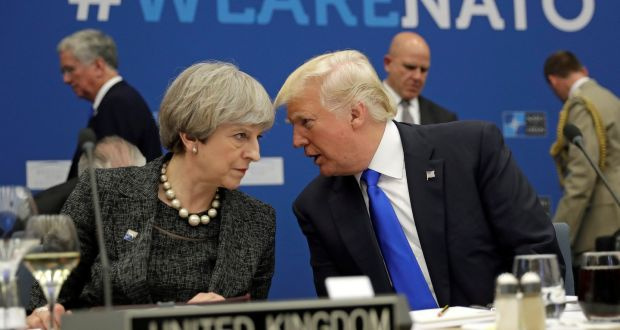No concerted movement in EU to accept Trump’s JCPOA demands

Professor Arshin Adib- believes “I don't think that there is any concerted movement in the EU to accept the demands set by Trump.”
Author of “Pycho-nationalism: Global thought and Iranian imaginations” also adds that “Equally, I don't think that Iran is or should be willing to negotiate with someone such as Donald Trump, who is quite obviously acting in bad faith and who does not have any understanding of international law and diplomacy.”
Professor in Global Thought and Comparative Philosophies and Chair of the Centre for Iranian Studies at the London Middle East Institute, also adds that “I think that there is a conscious effort by the Trump administration to kill the JCPOA.”
Here is the full text of the interview:
Q: US President Donald Trump approved the Iran nuclear deal only one more time before abandoning it if it is not changed. What are the changes that Trump emphasize on them?
A: The most important change requested by Trump is that Iran's inter ballistic missile programme becomes a part of the agreement, and thus open to full oversight and potentially sanctions. Other demands include even more inspections of all sites including military ones, and the phased expiration dates of various limitations placed on Iran’s nuclear program which are set to lapse 10 to 15 years in the future. Trump wants them to continue indefinitely. Of course, these are outrageous demands that are meant to push the JCPOA further to the brink. In my first interview about Trump, I said that he is the most dangerous man in the world. I continue to stick to that assessment. Who would have thought that the United States, with so much apparent talent would produce a racist, misogynist and anti-intellectual President such as Trump.
Q: The White House wants a deal with EU signatories to make restrictions on Iran's uranium enrichment permanent. Under the current deal they are set to expire in 2025. Do you think EU will accept this condition? If so, Will Iran accept it?
A: I don't think that there is any concerted movement in the EU to accept the demands set by Trump. Equally, I don't think that Iran is or should be willing to negotiate with someone such as Donald Trump, who is quite obviously acting in bad faith and who does not have any understanding of international law and diplomacy.
Q: Mr Trump also wants Iran's ballistic missile programm to be addressed. Iran frequently has emphasized that ballistic missile is not related to JCPOA and will not negotiated about it. According to this, do you think that this condition meaning the end for JCPOA?
A: I think that there is a conscious effort by the Trump administration to kill the JCPOA. At some stage, Iran has to make a decision whether or not it got its fair share out of the agreement. I don't think the Rouhani administration has done enough and the recent protests in the country caused by corruption and socio-economic inequalities are a good indicator for the disappointment among many Iranians. In particular, the foreign missions of Iran, the embassies are almost worthless in being a functioning part in Iran's foreign policy transmission. Where was the Iranian ambassador to Britain when some of the international media was reporting nonsense about the protests? There is no activity in the British embassy in one of the most central towns in the world. There is no projects, no strategic engagements with the media, zero public relations by these officials who are meant to serve the nation. The Iranian embassy in London is dysfunctional when it comes to such matters and I have witnessed a similar paralysis in other foreign missions of the Islamic Republic. I think that the ambassadorial corps are well advised to reach out to scholars and to find common ways to further the interest of Iranians all over the world. This is one of the principles of public service and a pillar of the demands of the people after the revolution. As it stands, such simple requests are being betrayed on a daily basis feeding into the disenfranchisement of large segments of the population. Under the current international circumstances, Iran can't afford such laxity.
By Javad Heirannia
Source: Tehran Times

